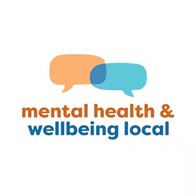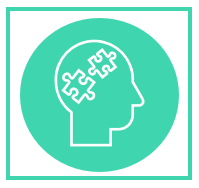Mental Health & Wellbeing Local – Victoria

What are Mental Health and Wellbeing Locals?
Mental Health and Wellbeing Locals provide treatment, care and support for people aged 26 years and over. The Locals are free, voluntary and easy to access, with no referral or Medicare card required. Care will be provided for people who need more support than a general practitioner (GP) or private mental health practitioner can offer, but who do not need higher-intensity services, such as hospital-based support services.

About the service

Areas of service

Eligibility and Accessing the service
Mental Health and Wellbeing Locals provide treatment, care and support for people aged 26 years and over. The Locals are free, voluntary and easy to access, with no referral or Medicare card required. Care will be provided for people who need more support than a general practitioner (GP) or private mental health practitioner can offer, but who do not need higher-intensity services, such as hospital-based support services.
Mental Health and Wellbeing Locals offer one-on-one support, group support and advice through listening and helping you explore the services and support right for you and your situation. Support is confidential and we will work with you to find the help you need.
Mental Health and Wellbeing Locals offer:
* Treatment and therapies
* Person-centered wellbeing supports
* Education, peer support and self-help
* Care planning and coordination with various service providers
* Person-centered wellbeing supports including
* Peer Worker Education, peer support and self-help
* Participant-led care planning and coordination with other service providers
* Additional Mental health supports and resources
Mental Health and Wellbeing Locals are respectful of, and responsive to, cultural needs and diversity. All visitors will receive fair access and culturally safe and responsive services that are free of stigma and discrimination.
Benalla, Wangaratta and Mansfield MH&WB Local Phone: 1800 000 842
* Benalla: Shop 5B, 66 Nunn St, Benalla VIC 3672
* Wangaratta: 5 Victoria Parade, Wangaratta VIC 3677
* Mansfield: 31 Highett St, Mansfield VIC 3722
Shepparton, Strathbogie, Moira MH&WB Local Phone: 1300 375 330
* Shepparton: 151-155 Maude Street, Shepparton VIC 3630
MH&WB Locals are available to anyone aged 26 years or older who may be:
* experiencing psychological distress, mental health challenges or alcohol and other drug concerns.
* who may need further support additional to what their usual doctor can offer and who does not need hospital services.
* may need psychosocial support by our peer workforce
Your Peer Worker
You will talk to a peer worker who will focus on listening and understanding your concerns, working with you to design a care plan that meets your goals and preferences, and offer the right support. You may receive tips and resources to help you be more aware of your mental health and hopefully provide you with some useful strategies to add into your daily life.
**Admin note: this is a hidden field - do not remove**
Staying Connected
Improving Diet and Exercise
- Feel better mentally – This can include mood, concentration, information retention, and overall performance.
- Reduce physical health problems that can arise from poor diet or low activity (due to low energy).
- Get help sooner – The healthier you are the more likely you are to identify problems in your health before they become debilitating. The earlier any physically or mental illness is identified, the easier it usually is to improve or treat.
- Take control of your life and routine so you can spend more time and energy on the things you enjoy!
Eating for your health is not just about avoiding unhealthy food groups, its also about the way we consume food and the habits we form. You can complete the ‘Are you eating for health?’ quiz in the Australian Dietary Guidelines Summary to find out where you sit. Similarly to the right of this section, there are a number of online calculators for nutrition that can guide you.